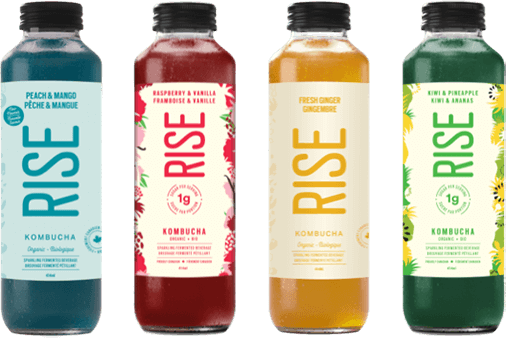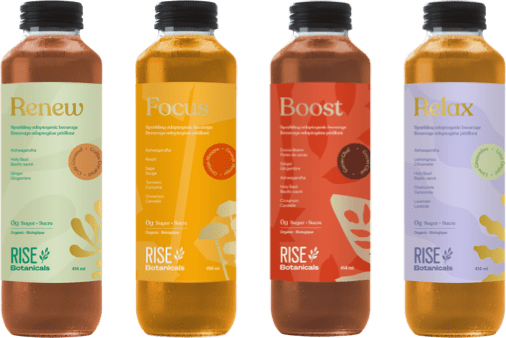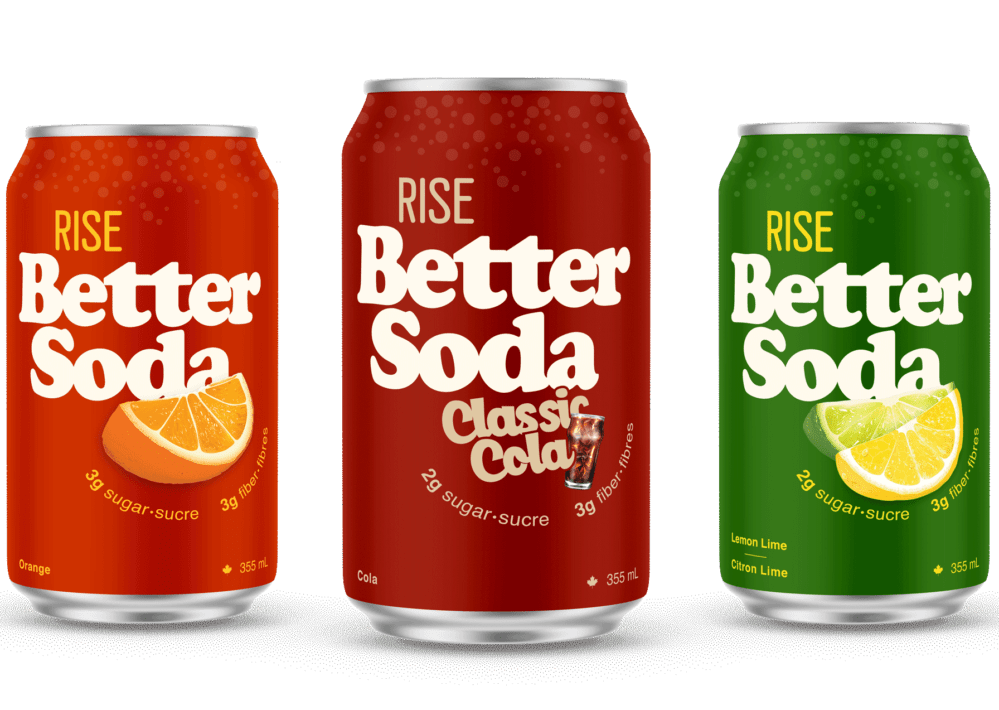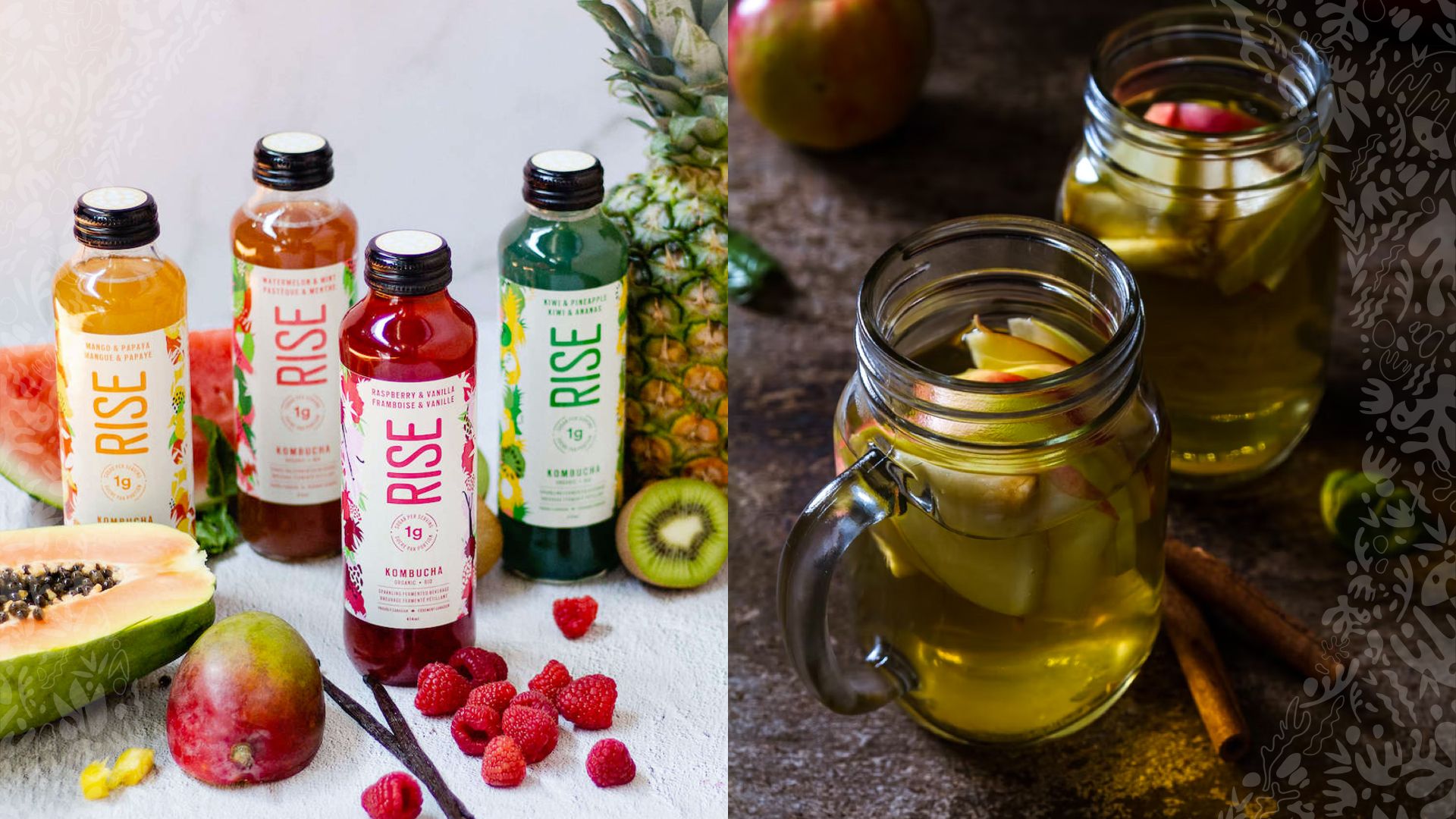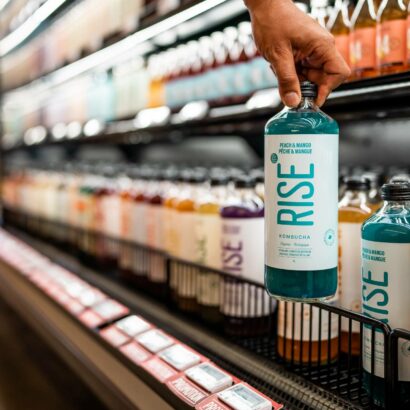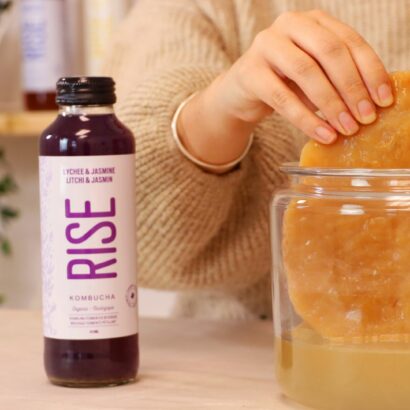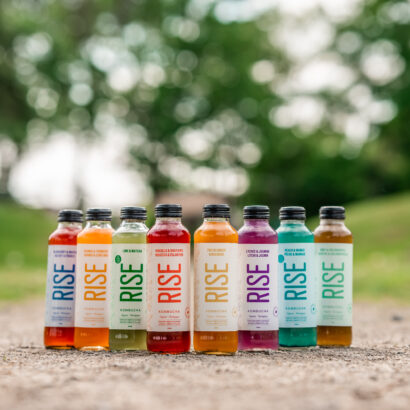What’s the Difference Between Kombucha and Apple Cider Vinegar?
Apple cider vinegar (ACV) contains many nutrients, but when it comes to a good-for-you beverage you can enjoy throughout your day, RISE Kombucha reigns supreme!
What Is Kombucha?
Kombucha is a sparkling beverage made by fermenting tea and sugar with a symbiotic culture of bacteria and yeast (SCOBY). Kombucha is composed of living cultures, organic acids, and antioxidants that help digestion and support the immune system. Real kombucha (like RISE Kombucha) is raw, unpasteurized, and is filled with good bacteria and yeast that is very potent.
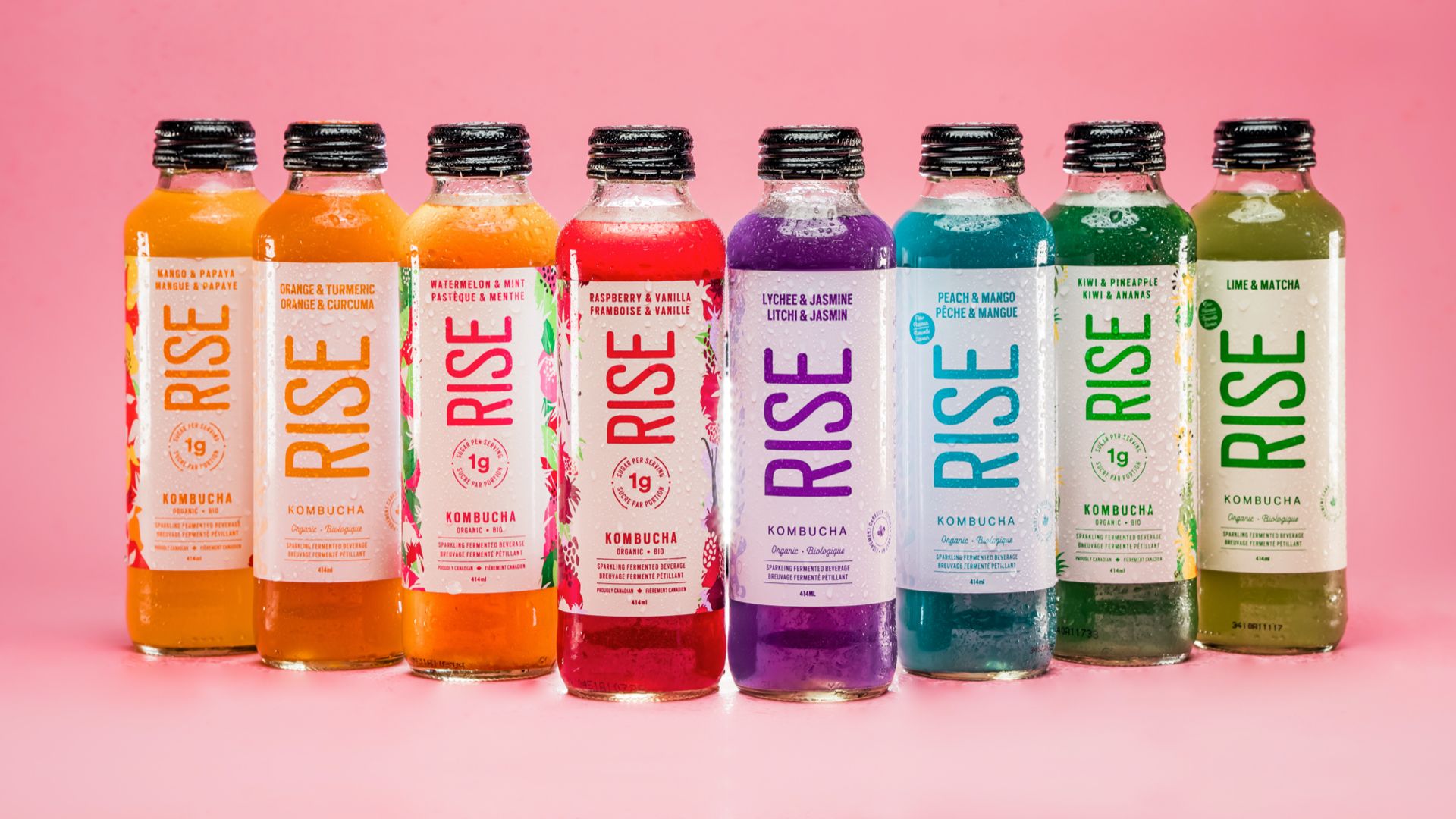
What to Look for When Buying Kombucha
Aside from favourite flavours, there are other things you should look for when shopping for kombucha.
Ensure it’s Refrigerated
When shopping for kombucha, look for those that are sold refrigerated. Shelf stable kombucha is pasteurized, whereas those found in the refrigerated aisle are raw, unpasteurized and authentic…. like RISE Kombucha!
Amount of Caffeine
The caffeine found in kombucha results from the tea leaves used to make kombucha (think black, green, white, oolong) that naturally contain caffeine. Kombucha contains around one-third of the caffeine from tea and is full of living cultures. If that’s not enough to convince you, it also tastes delicious!
The amount of caffeine will vary by brand. They all have different techniques, ingredients, and fermentation processes to create the kombucha. For example, our Orange & Turmeric kombucha contains just 10 mg of sugar within 207 ml.
Alcohol Content
Kombucha contains a small amount of alcohol, but it is relatively insignificant. It must be below 0.5% ABV to sell in stores. This makes the beverage an unlikely cause for concern for adults or children who drink kombucha regularly. Keep your RISE Kombucha refrigerated to ensure the alcohol content always stays below 0.5% ABV.
Amount of Sugar
RISE Kombucha uses raw, organic cane sugar to make our brew. Without it, the cultures would not ferment and release CO2 and ethanol (alcohol). Our classic flavours have only 5-7 grams of sugar per serving, while our 1g flavours have just a gram! To learn more about the role sugar plays in kombucha, read our post on The Best Low-Sugar Kombucha.
What Is Apple Cider Vinegar?
Apple cider vinegar is produced by the fermentation of apple juice. Yeast converts sugar into alcohol, and bacteria turn it into acid during the process, giving the vinegar its sour taste and strong smell.
There are different types of apple cider vinegar with distinct properties that may make them more suitable for specific uses.
For example, distilled ACV looks clear in the bottle because it’s usually filtered or pasteurized before bottling, which can remove some favorable components like “the Mother.” Raw unfiltered or unpasteurized ACV contains these valuable compounds as well as enzymes and living cultures, making this version healthier overall.
Some people strictly use apple cider vinegar for cooking, but others consume it straight for its possible health advantages.

What the Two Beverages Have in Common
Both kombucha and vinegar are made using fermentation processes. Both will form a new SCOBY or ‘Mother of Vinegar’ culture. Though vinegar and kombucha come from bacteria cultures, they do not contain the same fermentation byproducts and/or amounts.
The Difference Between the Kombucha and ACV
Kombucha is formed when yeast breaks down the sugar in tea and turns it into carbon dioxide, creating bubbles. Vinegar has a high concentration of acetic acid because alcohol breakdown is limited to anaerobic breakdown, resulting in more acetic acid.
Kombucha is a delicious and enjoyable beverage with a range of fun flavours for everyone, while ACV is not… is barely drinkable, often diluted by water and taken in “shots”.
Kombucha is also excellent for consumption throughout the day. In contrast, apple cider vinegar is not something you would likely sip around the clock!
Another major difference between these two products is that kombucha is made from tea and sugar. While there are a wide variety of apple cider vinegar types, none are made from tea.
While regular household vinegar does not contain yeast cultures, kombucha will have yeast – even if it becomes kombucha vinegar.
Which Is Better: Kombucha or Apple Cider Vinegar?
At the end of the day, it’s all about personal preference. While apple cider vinegar is great on salads, we’d rather sip on a RISE Kombucha by the canal rather than a shot of apple cider vinegar; how about you?!

